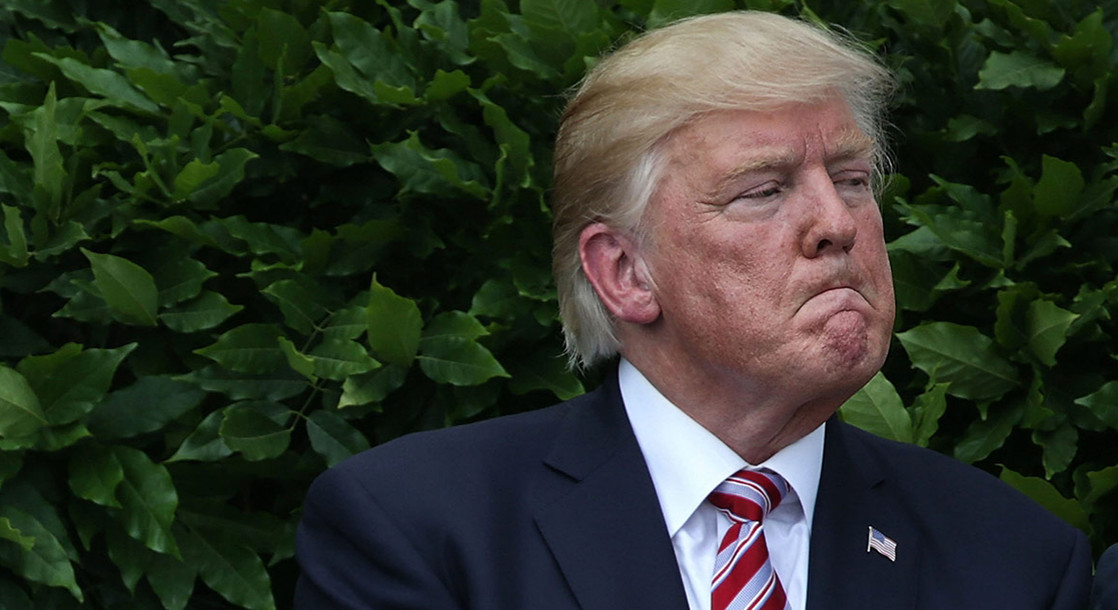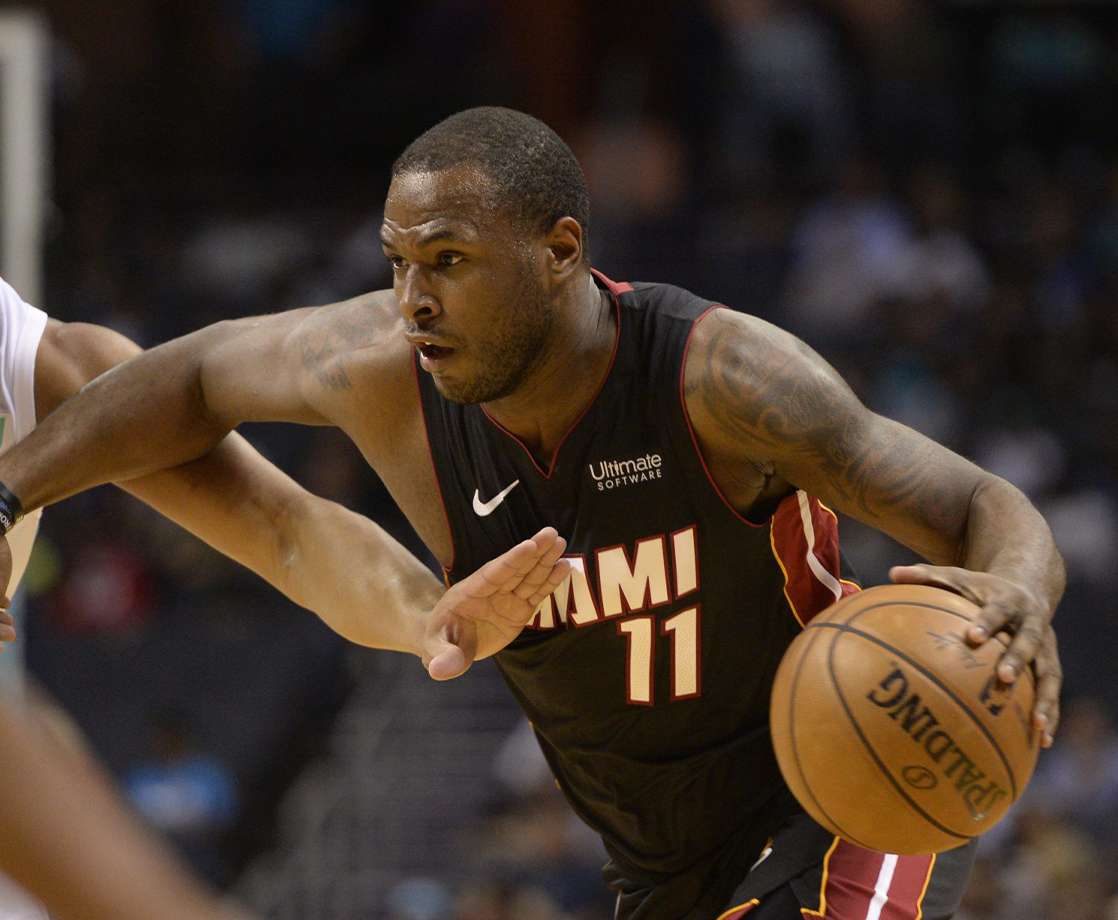For perhaps the first time since he was elected president, Donald Trump wasn’t directly responsible for the most contentious headlines over the past week. The political landscape was deeply shaken up on Wednesday after Republican House Majority Whip Steve Scalise and several others were shot and injured at a baseball practice field in Washington, D.C. A few days later, a Navy destroyer collided with a merchant ship off the coast of Japan, leading to the death of seven US sailors.
Despite this dreadful string of events, the president still managed to draw some negative attention to himself, and also received some bad news on his birthday. As the special counsel overseeing the Russian investigation looms larger than ever, the Trump administration is starting to show signs of panic and agitation. To keep you up to date with everything going on within the White House, here’s a recap of everything the president was involved with this past week.
Special Counsel Expands Scope of Investigation, Focus Shifts Onto Trump
-
Just over one month after Trump fired FBI Director James Comey, the president is now apparently looking for a justifiable reason to dismantle the special counsel that is responsible for overseeing the investigation into Russia’s meddling with the 2016 election. On Monday, a source close to the president revealed that he was strongly considering the dismissal of special counsel Robert Mueller. The information was passed along by Chris Ruddy, the CEO of conservative news organization NewsMax, who told PBS's Judy Woodruff that Trump is thinking about “terminating the special counsel.”
-
A few days later, the president’s dismay over the special counsel was amplified to a whole new level. On the day of Trump’s birthday, The Washington Post reported that the Mueller-led investigation has been interviewing senior intelligence officials to figure out whether or not the president attempted to obstruct justice. This revelation marks a major turning point in the FBI probe, which has primarily focused on Russia and also allowed Trump to constantly boast that he was not under investigation.
-
The president’s closest associates have also come under the FBI’s magnifying glass. This past week, U.S. officials confirmed that Trump’s son-in-law Jared Kushner is also being investigated by the special counsel. After previously being scrutinized by investigators for hosting undisclosed meetings with Russians back in December, Kushner is now being examined over his sketchy financial ties and business dealings.
-
As the scope of the FBI investigation continues to expand, so does the staff of the special counsel. Over the past week, Mueller has added a total 13 lawyers, investigators, and leading experts. A number of these appointed attorneys have worked on extremely high-profile cases, including Watergate and the Enron scandal.
-
In fact, the Russian controversy is hitting so close to the White House that even Trump’s personal attorney, Michael Cohen, has hired his own lawyer to deal with the special counsel’s investigation. Sources have stated that Cohen will testify before the House Intelligence Committee on September 5, delaying the original date due to “scheduling and logistics.”
-
Vice President Mike Pence has also hired outside legal counsel to help him steer clear of trouble from the intensifying FBI investigation. It was recently revealed that Richmond lawyer Richard Cullen will assist Pence with potential inquiries from Mueller’s special counsel and the congressional committees.
Jeff Sessions Testifies Before Senate, But Doesn’t Seem to Recall Much
-
Of all the members in Trump’s administration, all eyes were focused on U.S. Attorney General Jeff Sessions this week as he testified before the Senate Intelligence Committee. When asked about whether or not he or his colleagues held discussions with Russian officials, his memory suddenly started to fail him. When he was pressed by Democratic Sen. Joe Manchin about the connections between Trump aides and Russia, Sessions repeatedly stated that “I don’t recall,” ultimately refusing to give a yes or no answer to a simple question.
-
The scandalous AG was also asked multiple times about his personal conversations with Trump, but refused disclose any details without actually having the legal standing to do so. Although the president didn’t invoke “executive privilege,” which would have effectively absolved Sessions of having to share information, the former Alabama Senator refused to comply with the committee’s questioning. During a testy exchange with Sen. Martin Heinrich, Sessions claimed that “it would inappropriate for me to answer and reveal private conversations with the president when he has not had a full opportunity to review the questions and to make a decision on whether or not to approve such an answer.”
-
Shortly after the highly conflicting hearing was finished, a critical part of Sessions testimony was refuted by Richard Burt, an American lobbyist for Russian interests. Sessions reportedly had contact with the lobbyist during the 2016 election, inviting him to discuss issues of national security and foreign policy over dinner.
White House Scrambles Under Increasing Pressure of Russian Probe
-
During a press conference last weekend, Mr. Trump was in the public eye attempting to discredit the pivotal testimony given by former FBI Director James Comey. In response to a reporter’s question on the matter, the president said that he would “100%” agree to testify under oath in response to Comey’s allegations. The surprising statement was quickly quelled by White House press secretary Sean Spicer, who claimed that the president was “specifically asked whether or not he would talk to Director Mueller,” and never agreed to testify before Congress.
-
This past week, a memo from the National Security Agency reportedly detailed a shocking phone conversation between Trump and NSA Director Mike Rodgers. According to the document, the president pressured the intelligence chief to publically acknowledge that there was no evidence of collusion between his campaign and Russian officials. The memo itself was written by Rick Ledgett, the former deputy director of the NSA who resigned from his post earlier this year. Special counsel Mueller plans to interview Ledgett as part of the ongoing investigation into Russia’s meddling with the 2016 election.
-
While the FBI probe continues to expand, the Senate has wasted no time preparing additional sanctions against Russia in retaliation to their alleged election interference. Both Democrats and Republicans have overwhelmingly approved a new set of international restrictions to place upon the Kremlin. Unsurprisingly, the White House has been pushing for House Republicans to make the Senate-approved bill more favorable for Russia.
This Week In Policy: Travel Ban Falls Flat Again, Dems Introduce COVFEFE Act
-
While the Russian investigation might be the most glaring problem that Trump is currently facing, it’s far from the only one. This past week, the United States Court of Appeals for the Ninth Circuit in San Francisco ruled against the president’s controversial travel ban that would ban people from six Muslim-majority countries. The order has been defeated and revised a number of times already, and the latest version was previously shut down last month by the United States Court of Appeals for the Fourth Circuit in Richmond, Virginia.
-
Trump is also facing a new lawsuit filed by D.C. Attorney General Karl Racine and Maryland Attorney General Brian Frosh. The two government entities allege that the president has violated anti-corruption clauses in the Constitution by accepting millions in payments from foreign governments since he took office. The case centers around Trump’s false claim that he would transfer his business assets to his sons to avoid conflicts of interests before his inauguration. Instead, he has retained ownership of his company, which the two acting attorneys chalk up as “unprecedented constitutional violations” by Trump.
-
This past week, six members from the Presidential Advisory Council on HIV/AIDS (PACHA) resigned over the president’s lack of interest and detrimental health care policies. "As advocates for people living with HIV, we have dedicated our lives to combating this disease and no longer feel we can do so effectively within the confines of an advisory body to a president who simply does not care," the former council members said in a public statement.
-
In what is surely the most humorous name for proposed legislation so far this year, Democratic Rep. Mike Quigley recently introduced the The Communications Over Various Feeds Electronically for Engagement (COVFEFE) Act. The measure would officially classify social media posts from Trump into the presidential records. Playing off of the viral Twitter typo “covfefe” last month, the bill would add social media to the Presidential Records Act, making it illegal for the president to delete tweets.
Trump Continues to Wreck America’s International Standing
-
Last month, Trump was condemned for bragging to visiting Russian officials about classified information that he received from Israel. This week, we learned more about the intelligence that America's longstanding Middle Eastern ally shared with the president (who subsequently shared it with an adversary). A recent report claims that Israeli "cyberoperators" successfully hacked computers belonging to ISIS bombmakers in Syria. This top-secret information allowed the United States to discover that the terrorist cell was working to create explosives that could pass as a laptop battery and fool airport security.
-
After traveling down to Miami on Friday, the president announced a new policy that would tighten up restrictions against Cuba. The sudden move is a rollback of the historic policy introduced by former president Barack Obama, though it will not completely reverse the directive. The austere rules implemented by Trump will impact travel and the allowance of sending funds, but the U.S. will keep its embassy open in Havana.
-
During a phone call with UK Prime Minister Theresa May a few weeks ago, Donald Trump cancelled his planned visit to Britain over fears that people will protest his presence. While May has stirred up her own controversy after her Conservative Party severely underperformed during the country’s recent snap election, even she was reportedly surprised by the president’s refusal to commit to his state visit.
-
Aside from his faltering international reputation, Trump continues to lose support back at home as well. According to an Associated Press/NORC poll released this past week, 64-percent of the survey respondents stated that they disapprove of how the president has handled his responsibilities in the Oval Office.











